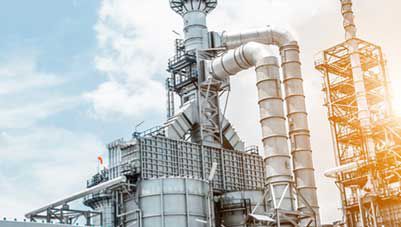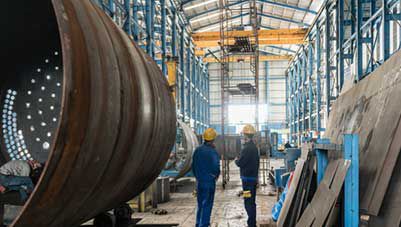In today’s electricity-dependent world, diesel generators offer a reliable and efficient backup solution for homes, businesses, and industries. They provide uninterrupted power during outages or in areas with limited grid access. This guide explains what diesel generators are, how they work, the types available, their price range in India, and the factors that affect cost. It also includes practical buying tips and financing options to help you select the right generator. Whether for emergencies or continuous use, this guide helps you make an informed and cost-effective choice.
What is a diesel generator?
A diesel generator is a device that converts chemical energy from diesel fuel into electrical energy. It serves as a reliable power backup solution in residential, commercial, and industrial settings. Diesel generators are composed of two primary components: a diesel engine and an alternator. These machines are widely used in areas where grid power is unstable or unavailable, providing consistent and long-lasting electricity supply.
How does a diesel generator work?
A diesel generator works by using a diesel engine to drive an alternator (generator). When the engine runs, it burns diesel fuel to create mechanical energy. This energy rotates the alternator's shaft, generating electrical power through electromagnetic induction. The process is automated and efficient, making diesel generators ideal for emergency and continuous power applications.
The process involves a four-stroke cycle in the engine and power generation in the alternator:
- Air Intake and Compression: The piston moves down (intake stroke) to draw in fresh air, then moves up (compression stroke) to compress it. This raises the air’s temperature and pressure to very high levels.
- Fuel Injection and Combustion: At the top of the compression stroke, diesel fuel is injected as a fine mist into the hot, compressed air. The heat causes the fuel to ignite automatically (compression ignition), without a spark plug.
- Mechanical Energy Production: The expanding gases push the piston down (power stroke). The piston’s up-and-down motion is converted into rotational motion by the crankshaft.
- Electrical Energy Generation: The crankshaft spins the rotor (with magnets) inside the stator (stationary copper coils) of the alternator. This movement creates an electric current (AC power) in the coils through electromagnetic induction.
- Regulation and Distribution: The electricity passes through a voltage regulator to keep it stable, then goes via the control panel and circuit breakers to supply power to connected devices.
What is the diesel generator working principle?
The working principle of a diesel generator can be understood in key steps:
- Fuel combustion – Diesel fuel is injected into the engine cylinder and ignited to produce high-pressure gas.
- Mechanical energy generation – The expanding gases push the piston, converting chemical energy into mechanical energy.
- Rotation of crankshaft – The piston's movement turns the crankshaft, which rotates the alternator’s rotor.
- Electrical energy output – As the rotor spins inside the stator, it produces electricity via electromagnetic induction.
- Power distribution – The generated electricity is then supplied to connected loads or stored in batteries for future use.
Different types of diesel generators
Diesel generators come in several types, depending on their use, size, and power output. These include:
- Portable diesel generators – Small and mobile units suitable for homes, outdoor events, or remote job sites.
- Standby diesel generators – Automatically start during power outages and are commonly used in hospitals, data centers, and offices.
- Prime and continuous power generators – Designed for regular or continuous use, ideal for industrial and remote operations.
- Silent or enclosed generators – Equipped with noise-reducing enclosures for quieter operation.
How to choose a diesel generator set?
Selecting the right diesel generator involves evaluating several factors to ensure reliable and efficient performance:
- Determine the total electrical load you need to support.
- Decide between single-phase or three-phase output based on your application.
- Assess the required runtime and fuel efficiency.
- Consider noise levels, especially for residential or indoor use.
- Ensure compliance with local emission and safety standards.
- Evaluate after-sales service, spare parts availability, and warranty coverage.
If you’re planning to invest in a new generator for your business, you may want to check your business loan eligibility to see what financing support is available.
Which diesel generator is right for your needs?
Choosing the right diesel generator depends on the following considerations:
- Purpose – Backup, continuous, or portable power
- Power output – Match the kVA rating with your load requirement
- Installation site – Indoor, outdoor, mobile, or permanent setup
- Fuel efficiency – Look for models offering longer runtime per litre
- Budget – Include purchase, installation, and maintenance costs
- Maintenance requirements – Choose models known for reliability and ease of service
Price range of diesel generators in India
In India, diesel generator prices vary widely depending on their type (portable, open, silent/soundproof) and power output (kVA). Prices range from around Rs. 30,000 for small portable models to over Rs. 80 lakh for large industrial units.
The table below shows approximate price ranges (INR) for different types and capacities of new diesel generators in India:
| Type | Power Output (kVA) | Price Range (Rs.) | Primary Usage |
|---|---|---|---|
| Portable / Small | 1 – 10 | Rs. 30,000 – Rs. 1,80,000 | Homes, small shops, camping, events |
| Open Type (Medium) | 10 – 50 | Rs. 1,00,000 – Rs. 5,00,000 | Construction sites, small industries, commercial places where noise is less a concern |
| Silent / Soundproof | 10 – 50 | Rs. 2,00,000 – Rs. 7,00,000 | Homes, offices, hospitals, data centres, malls, and other noise-sensitive areas |
| Industrial / High Capacity | 60 – 200 | Rs. 5,00,000 – Rs. 25,00,000+ | Factories, large commercial buildings, infrastructure projects |
| Heavy Duty Industrial | 250 – 500+ | Rs. 20,00,000 – Rs. 80,00,000+ | Large factories, hospitals, data centres, mining, marine applications |
Factors affecting the price of a diesel generator
The final price of a diesel generator depends on several factors:
- Power Output (kVA): The main factor—higher capacity generators cost more.
- Enclosure Type: Silent or soundproof models are pricier than open-type units because of acoustic insulation needed for noise compliance in homes or commercial areas.
- Cooling System: Water-cooled generators are usually more complex and expensive than air-cooled models, especially at higher capacities.
- Features and Automation: Extra features like automatic start/stop (AMF panels), remote monitoring (IoT-enabled), and advanced control panels increase the cost.
- Compliance: Generators meeting stricter emission standards (e.g., CPCB IV+) may cost more due to advanced engine technology.
- Condition: New generators are considerably more expensive than used or refurbished ones.
Buying guide for diesel generator
When purchasing a diesel generator, keep the following tips in mind:
- Choose a trusted and reputable manufacturer or brand.
- Compare features such as automatic start, remote monitoring, and safety shut-offs.
- Match the generator size and type to your application.
- Inspect fuel tank capacity and runtime.
- Consider long-term costs including servicing and repairs.
- Explore machinery loan finance options to ease the upfront financial burden.
You can also check your pre-approved business loan offer to speed up your purchase decision and get quicker access to funds.
Diesel generator financing options
Diesel generators can be a significant investment, especially for businesses and industrial facilities. Fortunately, several industrial equipment finance options are available to help you manage costs effectively. These solutions allow for flexible repayments, enabling you to maintain cash flow while upgrading your power infrastructure.
Conclusion
Diesel generators play a vital role in ensuring uninterrupted power supply across industries, commercial buildings, and remote locations. By understanding how they work, what types are available, and how to choose the right one, you can make an informed decision. Whether you’re planning a new purchase or upgrading an old unit, consider exploring a business loan to finance your investment smartly and affordably.















